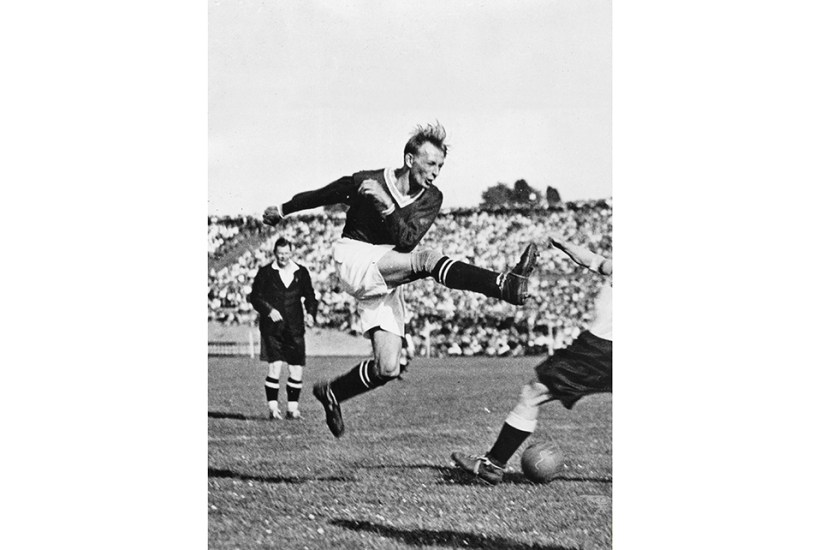Vienna, April 1938. To mark the Anschluss, the annexation of Austria by the Third Reich, the German football team plays a match against the Austrian team, which will cease to exist when the match is over. The Austrians are much better, but can’t seem to score – aha, the match has been fixed by the Nazis. And then, in the 70th minute, Austria’s best player, Matthias Sindelar, can’t take the pretence any more and puts the ball in the German net. At the end of the match, to underline his feelings, he performs a victory dance in front of the Nazi dignitaries. This might sound like fiction but it really happened.
Sindelar, the ‘Paper Man’ of this book’s title, was 35 at the time, and, in his prime, had been probably the best player in the world. He was a striker who drifted around the pitch, a bit like Messi or Cruyff – today we might call him a ‘false nine’. He was light and slender, hence the nickname. Manchester United wanted him, but he turned them down. He liked nightclubs and, people said, had lots of girlfriends. He was found dead along with a young Italian woman in his Vienna apartment in 1939. Did the Nazis kill him? Possibly. Was it a suicide pact? Less likely. Or was it carbon monoxide poisoning from a leaky gas pipe? We will never know.
In this imaginative, beautifully told fiction, we see Sindelar relaxing after the Germany match with his mates and his then girlfriend Rebekah, who is Jewish. The action cuts to Ireland in 1980, where Jack Shine, a 41-year-old Jewish stevedore, finds a box full of love letters written to his mother Rebekah from an Austrian footballer who died mysteriously in the year he was born. Jack is determined to find out the truth about his mother – and, of course, possibly his father.
Billy O’Callaghan arranges the story superbly, so that for a while we know more than Jack does; then Jack catches up, and the reader and Jack are neck-and-neck when the penny finally drops. We travel back in time to pre-war Vienna, where the Paper Man (on the pitch a great anticipator of events) tells Rebekah she must leave the country as soon as possible. He sees the danger. She heads to Switzerland, then France, then Dover, and finally to the rainy privation of Cork, where she is welcomed by Jewish relatives. Two more dramatic things will happen to her. To herald the first, she misses a period. Then another.
This might make a lovely film. Remember the evening of the Anschluss match? Rebekah and Sindelar were celebrating with Sindelar’s best friend Gustav. Somehow, Jack Shine manages to find Gustav – now an old man, but compos mentis and full of memories. Together they visit Sindelar’s grave. There are moments – escalating as we reach the end – when the reader will want to wipe away a tear.
Got something to add? Join the discussion and comment below.
Get 10 issues for just $10
Subscribe to The Spectator Australia today for the next 10 magazine issues, plus full online access, for just $10.
You might disagree with half of it, but you’ll enjoy reading all of it. Try your first month for free, then just $2 a week for the remainder of your first year.








Comments
Don't miss out
Join the conversation with other Spectator Australia readers. Subscribe to leave a comment.
SUBSCRIBEAlready a subscriber? Log in